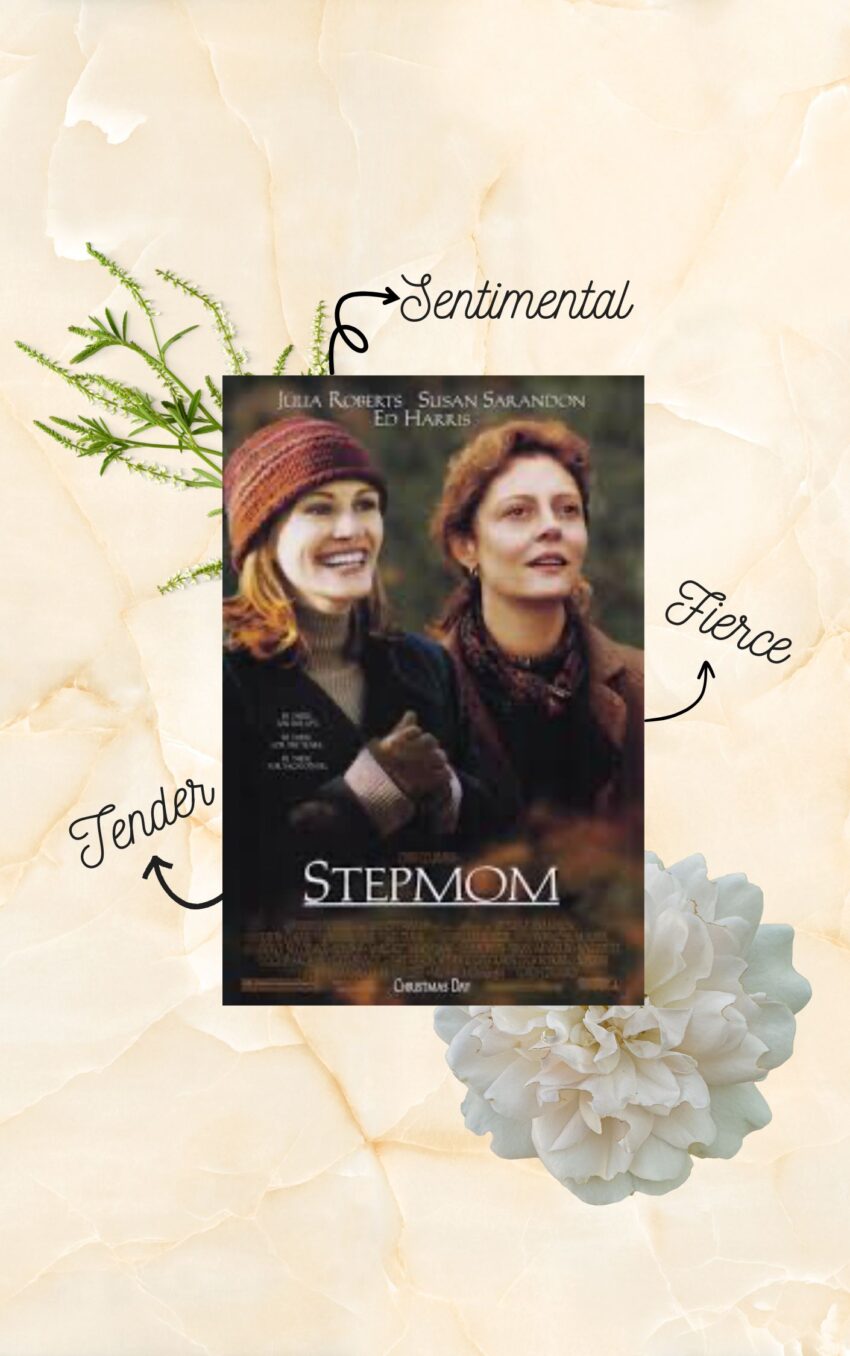I’ll never forget the first time I watched Stepmom (1998). It was one of those films that took me by surprise, making me laugh and cry all at once. The story centers around Isabel (played by Julia Roberts), a woman who becomes a stepmother to her boyfriend’s children, and Jackie (played by Susan Sarandon), their biological mother who is fighting a terminal illness. The emotional depth of the film really hit me in a way I wasn’t expecting, especially as it explored the complexities of motherhood, acceptance, and the bonds that form when life is uncertain.
What really stood out to me was the way Stepmom portrayed the relationship between Isabel and Jackie. At the beginning, they’re clearly on opposite sides. Jackie is protective, angry, and full of resentment toward Isabel, while Isabel is caught between trying to make a connection with the kids and not wanting to step on Jackie’s toes. As the film goes on, their relationship shifts from animosity to a more complicated understanding. Watching their journey unfold—how they start to find respect for one another, despite their differences—was powerful. It reminded me that real relationships, especially the hardest ones, take time and can evolve in the most unexpected ways.
The movie also hit me on a personal level because of how it portrays motherhood. Jackie’s character is so incredibly relatable in her fierce devotion to her children. Watching her struggle with the reality that she won’t be around for them for much longer was heart-wrenching. It made me think of my own family and how hard it must be for a mother to let go. Isabel, on the other hand, is trying to figure out where she fits into this family. She’s not trying to replace Jackie, but she’s still building her own relationship with the kids. That balance between letting go and stepping up is something I’ve seen in my own life, and it really made me reflect on the importance of love in all forms.
What also made this film stand out was the way the kids were portrayed. The young girl, played by Jena Malone, was the emotional heart of the film for me. I could feel her confusion and pain as she tried to figure out where she stood with Isabel. It made me think about how tough it is for kids to adjust to new family dynamics, especially when they’ve already experienced loss or change. The way the children gradually warm up to Isabel felt so real to me—it wasn’t instant, but it was authentic.
By the end of the film, I was a mess of emotions. The final scenes, where Jackie gives Isabel her blessing to take care of the kids after she’s gone, were incredibly moving. It was a moment of pure, selfless love that captured the essence of the entire movie—family isn’t just about biology, but about the relationships we choose to nurture and the people who step in when we need them. Stepmom isn’t just a film about stepmothers or illness; it’s about the messy, complicated, but ultimately beautiful nature of love and family. It made me appreciate the people in my life who have shown me love in the most unexpected ways, and I can’t help but think of it every time I reflect on the ones I hold most dear.
